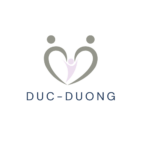Building strong relationships within a family can sometimes feel like a daunting task. Life’s stresses and daily routines can create barriers that make genuine connection difficult. That’s where family therapy activities come into play. These activities not only help to break down those walls but also foster understanding, trust, and communication among family members.
I’ve discovered that engaging in structured activities can transform the dynamics of a family. Whether it’s through games, discussions, or creative projects, these therapeutic exercises encourage everyone to open up and share their feelings. In this article, I’ll explore some effective family therapy activities designed to strengthen bonds and enhance relationships, proving that with a little effort, families can thrive together.
Key Takeaways
- Importance of Family Connection: Building strong relationships within a family fosters a supportive environment where each member feels valued and understood, enhancing overall family dynamics.
- Types of Activities: Various family therapy activities, including communication exercises, creative projects, role-playing games, and outdoor activities, are effective in promoting relationship building.
- Enhancing Communication Skills: Structured activities improve active listening and self-expression, helping family members articulate their thoughts and feelings confidently in a supportive setting.
- Setting Goals and Creating Safe Spaces: Establishing clear goals and a safe environment for expressing emotions without fear of judgment is crucial for maximizing the benefits of family therapy activities.
- Evaluating Effectiveness: Regularly assessing the impacts of family activities—through feedback, participation, and observable changes—ensures continuous improvement in relationships.
- Engagement and Adaptability: Consistency and openness in participating in activities, while being flexible to individual needs and preferences, are key to maintaining engagement and achieving relationship-building objectives.
Family Therapy Activities for Relationship Building
Family therapy activities focus on building relationships among family members. These activities aim to improve communication, develop empathy, and foster mutual understanding. Engaging in structured activities creates a safe space for family members to express thoughts and feelings openly.
Types Of Family Therapy Activities
- Communication Exercises
Communication exercises promote active listening and effective expression. Examples include sharing daily highlights or playing “”telephone”” to enhance clarity in communication. - Creative Projects
Creative projects, such as art or music collaboration, encourage self-expression and teamwork. Families can create a mural or compose a song together, which reinforces unity and creativity. - Role-Playing Games
Role-playing games allow family members to step into each other’s shoes to gain perspective. For instance, family members act out a common conflict, fostering understanding and resolution strategies. - Outdoor Activities
Outdoor activities, like hiking or sports, promote bonding through shared experiences. These physical activities encourage teamwork while enhancing physical health. - Family Meetings
Family meetings provide a structured environment to discuss important issues. Setting an agenda helps to address concerns efficiently while giving everyone a voice.
Benefits Of Family Therapy Activities
Family therapy activities yield numerous benefits. They improve conflict resolution skills, strengthen emotional connections, and enhance overall family dynamics. Participation in these structured activities leads to a healthier family environment and creates lasting memories.
Implementing Family Therapy Activities
When implementing family therapy activities, consistency and openness are key. Set aside regular time for activities, ensuring all family members can participate. Be adaptive to different interests and needs to maintain engagement and effectiveness.
Importance Of Relationship Building
Building strong relationships within a family creates a supportive environment where each member feels valued. Engaging in relationship-building activities strengthens these bonds, leading to healthier family dynamics.
Emotional Connection
Emotional connection forms the foundation of family relationships. When family members engage in activities together, they share experiences that foster empathy and understanding. For instance, participating in activities like storytelling or memory-sharing allows individuals to express feelings and personal histories. This openness cultivates deeper connections, helping each member recognize and validate each other’s emotions.
Communication Skills
Effective communication is essential for healthy family relationships. Engaging in structured communication activities enhances listening and expression skills. Activities such as role-playing or structured conversation starters encourage family members to articulate thoughts without judgment. Practicing these skills in a supportive space builds confidence, enabling more meaningful discussions in everyday life. Improved communication helps to address conflicts constructively while reinforcing a sense of belonging.
Types Of Family Therapy Activities
Family therapy activities come in various forms, tailored to enhance relationships and strengthen bonds among family members. These activities can be categorized into indoor and outdoor options.
Indoor Activities
Indoor activities foster connection and communication while allowing families to engage in a controlled environment. Activities such as board games encourage teamwork and strategy development. Art projects promote creative expression, enabling family members to collaborate and share ideas. Role-playing exercises offer perspectives on conflicts, allowing family members to navigate emotions and practice empathy. Cooking together teaches valuable life skills while nurturing cooperation, leading to enhanced family dynamics. Music or dance sessions build rhythm and collaboration, creating a fun atmosphere that encourages self-expression and bonding.
Outdoor Activities
Outdoor activities provide unique opportunities for families to bond in nature while engaging in physical activities. Hiking promotes health while encouraging conversation and exploration. Team sports, like soccer or basketball, instill cooperation and a sense of achievement. Nature scavenger hunts stimulate teamwork and observation skills, resulting in shared accomplishments. Camping trips facilitate relaxation and bonding through shared experiences around the campfire. Community service projects allow families to connect while contributing positively to their community, fostering a sense of unity and purpose.
Implementing Activities In Family Therapy
Implementing family therapy activities requires careful planning and attention to each family member’s needs. By setting clear goals and creating a safe environment, families can maximize the benefits of these therapeutic activities.
Setting Goals
Setting specific goals significantly enhances the effectiveness of family therapy activities. Goals may include improving communication, fostering trust, or resolving conflicts. I encourage families to involve every member in this process, ensuring that each person’s voice is heard. For example, members might aim to practice active listening during discussions or express emotions more openly. Regularly reviewing these goals allows families to track progress and adjust strategies as needed, maintaining focus on their objectives.
Creating A Safe Environment
Creating a safe environment is essential for successful family therapy activities. I prioritize establishing an atmosphere where family members feel comfortable expressing themselves without fear of judgment. This can include defining ground rules for discussions, such as no interrupting or using respectful language. Additionally, I recommend incorporating fun and engaging activities that promote positive interactions, such as team-building games or collaborative projects. In this supportive space, families develop stronger emotional connections and enhance their overall relationship dynamics.
Evaluating The Effectiveness Of Activities
Evaluating the effectiveness of family therapy activities involves multiple factors, including observable changes in communication patterns, emotional expressions, and relationship dynamics. I gauge success by closely monitoring families’ engagement levels during activities. Increased participation often indicates heightened interest and investment in restoring and improving relationships.
I assess improvements by soliciting feedback from all family members. Structured questionnaires or informal discussions after sessions help capture honest insights about experiences. Measuring shifts in emotional connections provides valuable information, highlighting areas where trust and empathy have improved.
I emphasize the importance of tracking specific outcomes. Families might consider setting benchmarks before activities, such as frequency of open discussions or reductions in conflicts. These benchmarks serve as quantifiable indicators of progress.
In addition, I recommend documenting experiences throughout the engagement. Keeping a journal or creating a family scrapbook allows families to visualize their journey and recognize growth over time. Reflection on activities fosters a culture of open communication.
Lastly, I analyze the adaptability of activities. If certain activities don’t resonate, I encourage families to modify them based on individual preferences or dynamics. Flexibility in approach ensures ongoing engagement and relevance, bolstering relationship-building efforts.
Strengthen Bonds Together
Building strong family relationships takes effort and intention. By incorporating family therapy activities into our routines, we can create opportunities for connection and understanding. These activities not only enhance communication but also foster empathy and trust among family members.
It’s essential to approach these activities with consistency and openness. By setting specific goals and regularly evaluating our progress, we can ensure that everyone feels valued and heard. Remember that adaptability is key; modifying activities to suit our family’s unique dynamics can keep engagement high and make the experience enjoyable for all.
Ultimately, investing time in these relationship-building activities can lead to a healthier and more supportive family environment where each member thrives.



